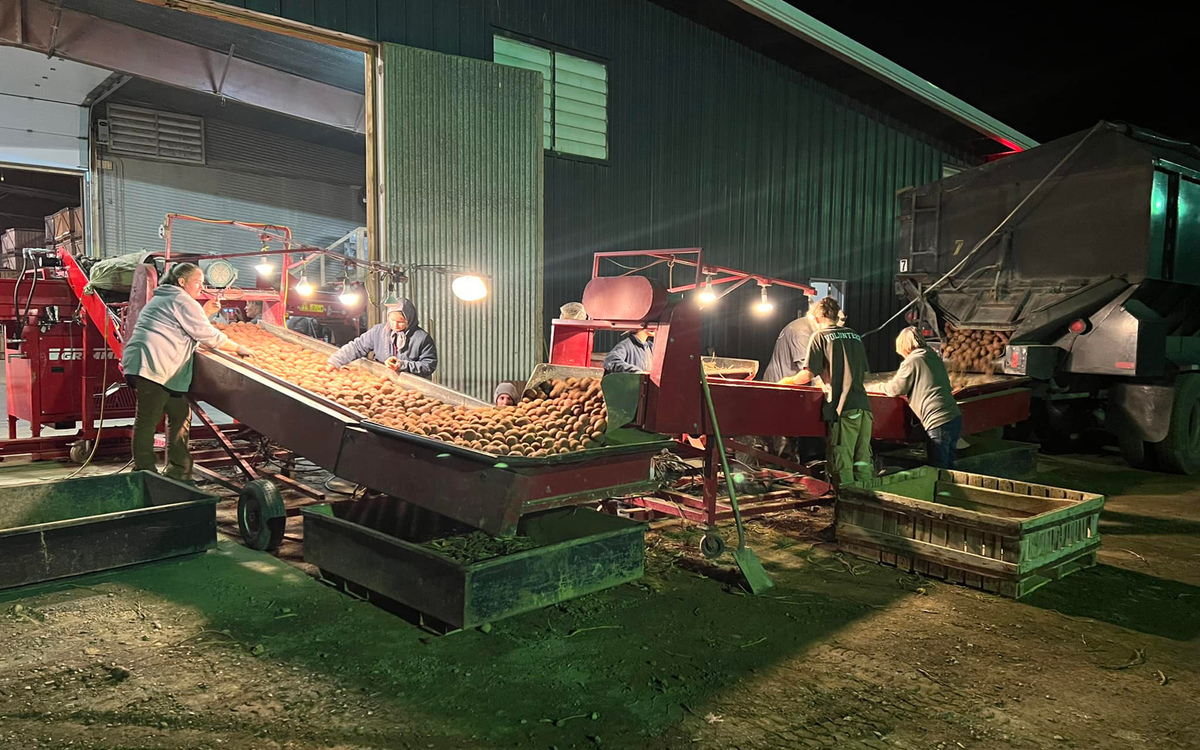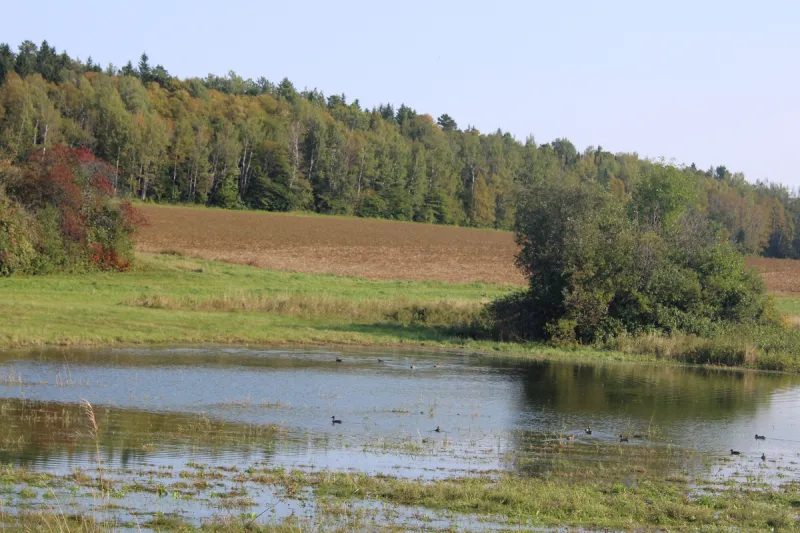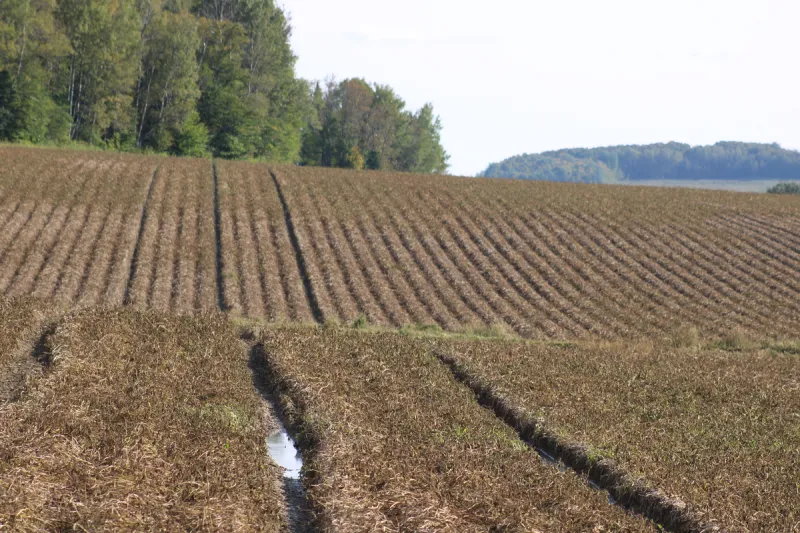
Sodden fields are keeping potatoes in the ground and many farmers are worried about rot.
Constant wet weather kept berry pickers away and hurt County hay production. Rain delayed planting season in Aroostook County, where about 90 percent of Maine’s potatoes are grown, and now it’s jeopardizing the multimillion-dollar crop.
It’s been more than a decade since wet weather has plagued County farmers. Potatoes need healthy moisture to grow, but too much water can lead to rot — and you can’t sell rotten potatoes. After a recent week of rain followed by deluges from a tropical storm, growers need drier days ahead to ensure a healthy crop, experts said this week.
“It’s so wet we can’t harvest. We have not been able to harvest any potatoes for storage,” Erica Fitzpatrick Peabody of Fitzpatrick/Peabody Farm in Houlton said Wednesday. She declined to say how many acres the farm planted.
Potatoes are Maine’s top food crop, followed by milk and blueberries. Record and near-record potato harvests the past two years brought more than $258 million into the state, and some growers actually ran out of storage space. With such a large haul, Maine farmers shared the wealth and in 2021 and 2022 shipped potatoes to Western states where weather damaged crops.
Much of the harvest heads into storage, waiting to be shipped to fresh markets, seed growers or processing companies to be made into french fries, potato chips and other food products. When potatoes have been wet for too long, they can be more vulnerable to diseases and storing them is more difficult, Fitzpatrick Peabody said.

She’s concerned about the water level because the area is above average for rainfall, but crews need to get out in the fields to really get a sense of conditions, she said.
Summer has been wet across the state. Bethel set rainfall records in May, June and July, with 7.2, 7.5 and 9.5 inches, respectively, according to the National Weather Service in Gray. Last weekend’s deluge from tropical storm Lee caused rivers to rise and soaked fields.
In Aroostook County, Caribou saw rainfall of 6.6 inches in August, its highest rainfall that month since 2011, according to Caribou weather service data. Fort Kent had its wettest June in 10 years with 6.4 inches of rain, and its wettest August in 12 years with 6.8 inches.
Sunny and dry conditions are forecast for the next seven days, with just a slight chance for a Monday shower. That means fields will continue to dry out, said Maine Potato Board Executive Director Don Flannery.
Farmers haven’t reported storage issues because it’s so early in the harvest, he said. But wet fields require care.
Potatoes need water, but they don’t need to lay in water, he said. When they’re soaked for too long, the lenticels, or pores, can soak up the excess moisture. Too much wetness over a long period can break the tubers down.
“I think that growers are going to have to be very cautious. There are going to be some low spots where potatoes will have to be left [in fields],” he said. “You don’t want to put compromised potatoes in a bin with healthy ones.”
Some farmers have gotten a later start than usual, while others are on schedule, Flannery said. It all depends on their location. St. John Valley growers were able to harvest last week, but fields were too wet to dig in southern Aroostook and central Maine.

It isn’t the first time farmers have dug in unfavorable weather, and won’t be the last, he said.
As the effects of climate change multiply, experts predict Maine will see wetter, warmer weather. Agricultural scientists have been working to create potatoes that are more resistant to moisture and disease, and farms are choosing climate-controlled storage to keep tubers fresh.
Technology gives growers tools to compensate for adverse weather, Fitzpatrick Peabody said. Today’s farmers have more ways to manage storage conditions than they did even 10 or 20 years ago.
Controlled-atmosphere storage has constant ventilation, and producers monitor carbon dioxide levels to allow the right amount of fresh air, she said. They can also apply products on potatoes to prevent the transfer of disease to healthy tubers.
There are also controlled-environment shipping containers. The last two years, Maine has filled a void for Western growers by shipping potatoes by rail and truck to states like Idaho and Washington, Fitzpatrick Peabody said.
Potatoes hadn’t been shipped by rail in more than 40 years. The rail journey took a month and the potato quality earned glowing reports, she said. That success means the industry has train transport as an option.
With some good drying days ahead, Fitzpatrick Peabody is ready to get out in the fields. And with typical Aroostook perseverance, she and crews will work as long as they can, whenever they can.
“We don’t have the remnants of a hurricane coming through this weekend, so hopefully we can get going,” she said. “Farmers have the equipment to get a lot done in a hurry.”







